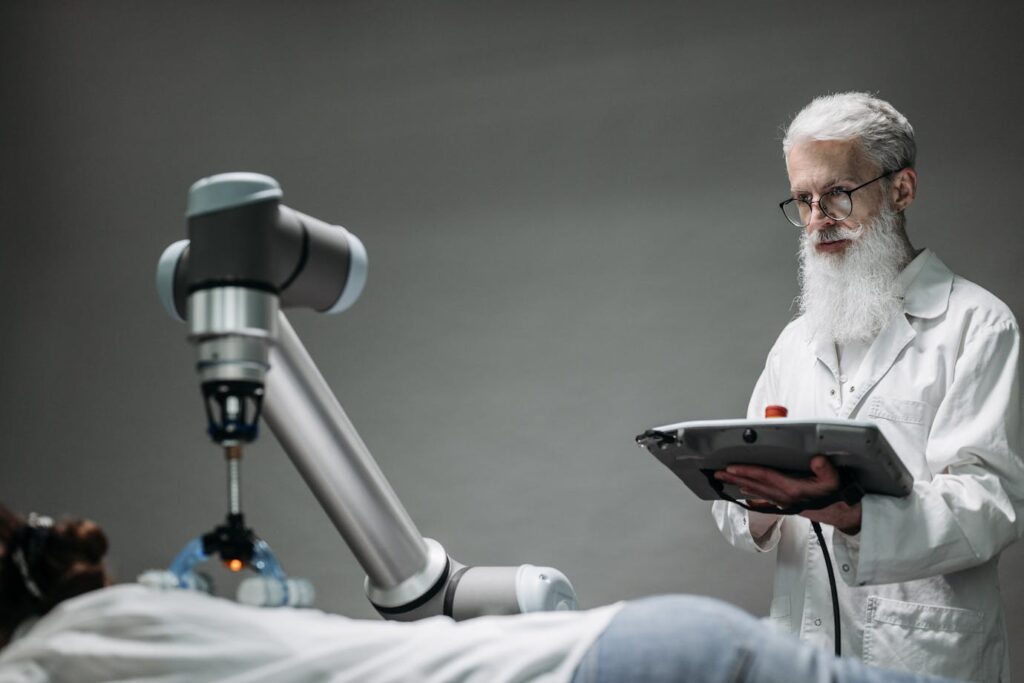Digital Health Innovation
The journey of digital health innovation has, arguably, been a remarkable one. It embarked on its path in the late 20th century, prompted by the advent of informatics. This nascent stage marked the initial utilization of computers in hospitals and clinics, preparing operational records and patient data. This seemingly modest beginning, however, laid the foundation for today’s sophisticated digital health landscape.

In recent years, digital health innovation has achieved numerous noteworthy milestones.
For instance, the emergence of Electronic Health Records (EHRs), marking a shift from paper records to digital ones, stands out as a significant achievement. Another major breakthrough was the development of Telehealth, enabling remote patient monitoring and doctor consultations, eliminating geographical constraints.
The Influence of Technology on Healthcare
Technology has wielded enormous influence on healthcare, acting as both a catalyst and a canvas for digital health innovation. In particular, the rise of Artificial Intelligence (AI) and Big Data has revolutionized healthcare operations and future possibilities.
AI, leveraging machine learning and deep learning techniques, has powered predictive diagnostics and personalized treatment plans, enhancing patient outcomes and healthcare efficiency.

Big Data, on the other hand, has provided healthcare with invaluable insights, enabling evidence-based decision making. It has fostered a data-driven healthcare environment, aimed at improving the quality of care and patient experiences.
Moreover, wearable technologies and mobile health applications have further expanded the frontiers of digital health. They’ve enabled constant health monitoring, giving healthcare providers a continuous feed of patient data. This has led to increased involvement and empowerment of individuals in managing their own health.
It’s evident, then, that technology’s hand in evolving healthcare is not just significant, it’s invaluable. It’s not merely an instigator of change but a perpetual enabler, constantly pushing the boundaries of what’s possible in digital health innovation.
Key Components of Digital Health Innovation
The progress in digital health innovation traces an upward trajectory, fueled by myriad components that have transformed traditional healthcare into a digital powerhouse. Delving into the depths, we encounter two pivotal facets: Wearable Devices and Real-Time Monitoring, and Artificial Intelligence in Diagnosis and Treatment.
Serving as the cornerstone in digital health innovation, wearable devices provide a hands-on approach towards healthcare. They come in various forms such as smartwatches, fitness bands, and health monitors. These devices collect crucial health data actively, and the real-time monitoring aspect ensures immediate feedback for the user.

Straddling the line between healthcare and consumer electronics, they have changed the game by empowering individuals with instant access to their health metrics. For instance, heart rate monitors track cardiovascular health, while glucose monitors give diabetics a tool to manage their conditions better. It’s also worth noting that sleep tracking devices give insights into the quality of sleep, a fundamental aspect that greatly affects overall wellbeing.
Artificial intelligence marks the frontline of advanced healthcare technology. It plays a defining role in diagnosing and treating various diseases, proving itself to be crucial in digital health innovation. Disease detection, for instance, has witnessed an enormous improvement by way of AI.
Implementations such as IBM’s Watson have showcased the potential of AI with its ability to analyze unstructured data and provide precise diagnoses. Furthermore, Google’s DeepMind Health project has displayed remarkable proficiency in detecting age-related macular degeneration using AI-driven image analysis.
Beyond diagnosis, AI has also begun to shine in the realm of treatment. Predictive algorithms accurately suggest therapy plans for patients, tentatively replacing traditional hunch-based decision-making. For instance, Tempus, a technology company specializing in precision medicine, uses AI data analysis to personalize cancer treatments.

